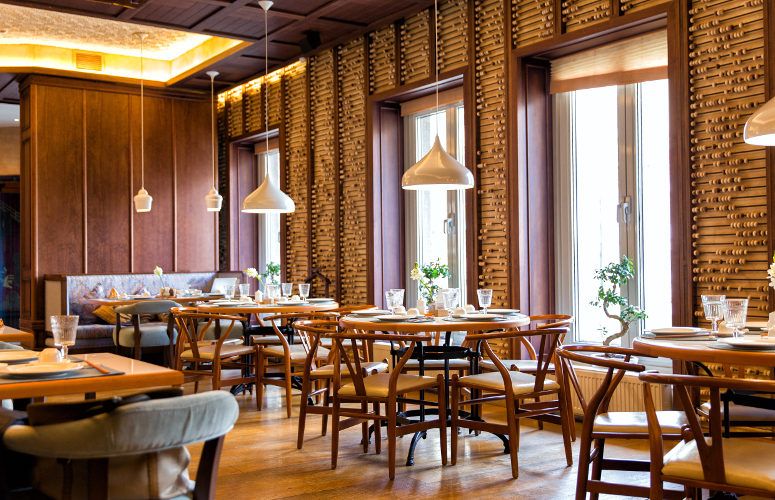
Off-Premise Sales, Non-Traditional Payment Options are Top of Mind for Restaurant Franchisees
72% implemented enhanced delivery and online/mobile ordering in response to COVID-19
On Oct 22, 2020Off-premise sales has become a key focus for restaurant franchisees in light of COVID-19, according to the 2020 Restaurant Franchise Pulse survey, conducted by TD Bank, America’s Most Convenient Bank®. Capacity restrictions designed to implement social distancing and customer concern about physically visiting restaurant locations led to the prioritization of enhanced delivery and mobile ordering capabilities to boost revenue, with 72% implementing this change.
While 86% of respondents reported having delivery and online ordering prior to the pandemic, which is a 14% increase in delivery since 2019, these offerings now account for a larger percentage of sales, climbing from 20% in 2019 to 39% in 2020. While this spike could be seen solely as a product of the pandemic, restaurant owners see the value of these services long-term. According to last year’s survey, only 12% of franchisees planned to invest in delivery and 25% in mobile ordering in 2020, which has since jumped to 63% planning to invest in delivery and 69% in mobile ordering in 2021 – a 51% increase in delivery and a 44% increase in mobile ordering.
“Franchises have invested a tremendous amount of time, money and creativity in delivery and mobile ordering, but not all restaurants have adapted to off-premise sales to the same degree as the QSR space,” said Mark Wasilefsky, head of Restaurant Franchise Finance Group, TD Bank. “Providing off-premise sales, which is critical to cash flow, requires having a menu that is amendable to delivery and takeout, which may be more difficult for restaurants that are not QSRs. Fast casual and fine dining establishments need to modify their menus to tasty food that travels well. We expect the shift to off-premise sales to be long lasting, and due to broad consumer acceptance of its added convenience, we believe it will likely become a permanent aspect of many franchises’ business models.”
Franchisees Become Nimbler
To overcome pandemic-related restrictions, franchisees quickly pivoted, making multiple changes to their operations as federal, state and city guidelines evolved. Respondents noted shifting in the following ways to remain nimble and cater to customer preferences and municipality guidelines:
- Implemented enhanced delivery services/online and mobile ordering (72%)
- Limited hours of operation (50%)
- Pivoted to non-traditional payment methods (42%)
- Created a more limited menu (38%)
- Added drive thru capabilities (38%)
“The consumer demand is clear as restaurants reopen nationwide – people still want to go out, be social and are tired of cooking at home. However, franchisees’ survival will depend on their creativity. We’ve seen restaurants pivot during the warmer months and now they must confront the next challenge – how to attract and retain business during colder months,” Wasilefsky added.
COVID-19 Brings Payment Options Front and Center
COVID-19 has altered consumer sentiment and behavior and as a result, many now expect a quick and seamless payments experience with limited physical interaction. To cater to evolving preferences, 42% of franchisees pivoted to non-traditional payment methods that eliminate shared devices, cards and the use of cash due to its propensity for germ accumulation. According to the survey, franchisees now use traditional retail or cloud-based point of sale (POS) systems (36%), online payments (28%) and person-to-person payment apps (22%) as their primary payment method.
“COVID-19 transformed payment offerings such as contactless, mobile and online payments from ‘nice to haves’ to ‘must haves’,” said Doug Mearkle, head of U.S. Merchant Services Sales, TD Bank. “Although we have previously been behind other countries in the adoption of contactless payments and other merchant offerings, this may be the catalyst the U.S. needed to bring heightened awareness of the benefits of these products.”
Changes to Franchise Real Estate are Uncertain
While larger QSR chains are beginning to announce their plans to create smaller stores with more pick-up and drive-thru space, this trend may be slow to trickle down to franchise owners. Respondents are split on making changes to their physical space, with 49% planning to reduce or having already reduced the number or size of their franchise locations as a result of COVID-19 and 51% not planning or having made any real estate changes. This may be because, according to our 2019 survey, 31% of respondents planned to invest in store reimaging or remodeling in 2020 so there may be a delay in additional significant investment in franchise real estate.
To access more business news, visit NJB News Now.
Related Articles:





